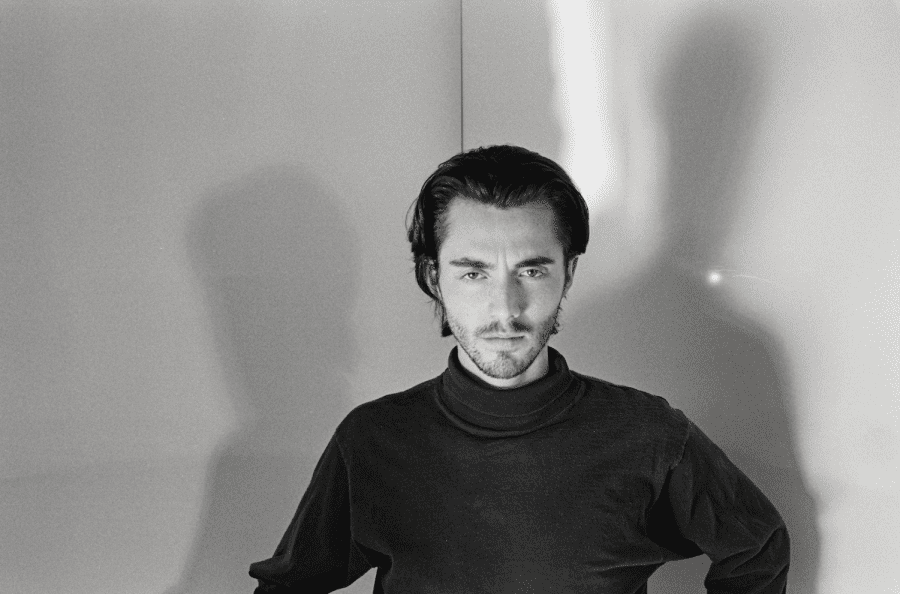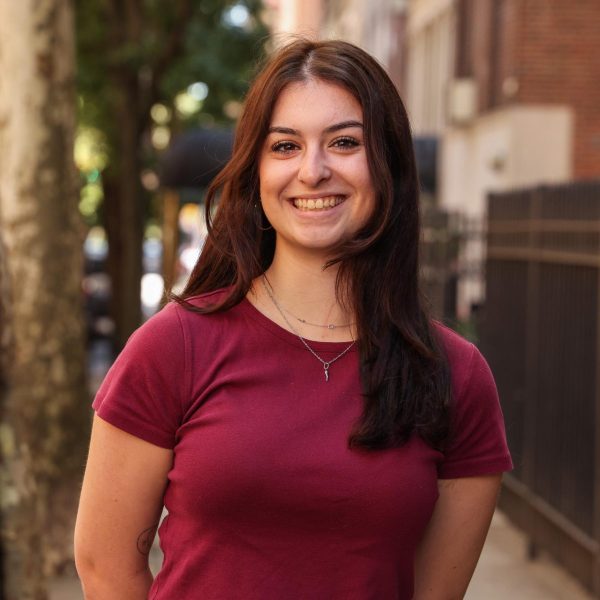Q&A: Greyson Chance on his music comeback and prioritizing mental health
Singer-songwriter Greyson Chance gets candid about his new era of music and his most recent album. He is playing at Gramercy Theatre on Friday, Dec. 2.
Greyson Chance, a 25-year-old singer-songwriter, talks about his most recent album “Palladium.” (Courtesy of 42West)
December 1, 2022
If you didn’t see singer-songwriter Greyson Chance’s cover of “Paparazzi” back in 2010, you probably lived under a rock. His middle school talent show performance in Oklahoma gained him Ellen DeGeneres’ attention, not to mention 71 million views on YouTube alone. DeGeneres quickly signed Chance to her record label, eleveneleven, where he released his first studio album “Hold On ‘til the Night” in August 2012. Quickly, he sang with the likes of Ariana Grande, Cody Simpson and Miranda Cosgrove. And then, quiet.
Chance has recently spoken out about how DeGeneres and her record label mistreated him, which led him to take a break from music around 2017. But in March 2019, he came back stronger than ever with his second album, “Portraits,” and signed with Sony Records soon after. Chance has recently come out as gay, opened up about his struggles with anorexia and the consequences of being a former child star. His most recent album, “Palladium,” was released this September.
This interview has been edited for length and clarity.
WSN: Your most recent album is named “Palladium,” which is actually an NYU residence and dining hall. I’m assuming this was not intentional, so what inspired the name for the album?
Chance: I went to college at the University of Tulsa. I’m from Oklahoma, and while I was there, I was studying history and two minors — one in anthropology and one in archaeology — and I studied Byzantine history. I had to do a lot of course study in some old Greek mythology and history. The story of Palladium derives from a Greek myth that I had to study a lot about Athena, the murder of her sister, Mount Olympus and all this Greek drama.
Basically, it was a story that had to deal with protection and what was most important to your core. At this time as an artist, I was feeling like the only way I could wake up and get out of bed in the morning was to protect my creative identity and make sure I was going into the studio, staying true to myself and making the album that I wanted to make
WSN: You told Rolling Stone that Palladium is about “protecting your instinct, your heart, your soul, and making sure that that’s your priority.” How would you recommend going about that?
Chance: As a musician, the thing a lot of people don’t realize is that you have so many people in your ear. At the end of the day, you’re still running a business. There’s still a lot of people trying to say, “Hey, you need more songs like this because they stream really well” or “Maybe you need to look like this on social media because that post performed well.”
It’s so easy to take a step away from what’s important and forget why you’re actually there. People respond to your voice, what you think, what you want the music to sound like, and to develop and nurture that level of self confidence is so fucking hard. One of the things I say in my show every night is we have a tendency to look toward the people that we love, and to point to them and tell them how beautiful they are. And when they’re going through a rough time, to say it’s going to be OK and here’s why. You have the strength or the endurance. How many times are we waking up in the morning, looking in the mirror and saying that to ourselves?”
My best advice is that I have none. I am figuring it out just as much as anyone else. If you see people and they have it dialed in, they are putting on a great front. Because none of us know, we’re trying to figure it out every day.
WSN: Do you have any advice for young people starting out in the music industry? For example, things to avoid that you’ve dealt with in the past?
Chance: Well, I’ll say this, and I don’t know if this is super positive and encouraging, but right now is maybe the toughest time for any aspiring artist because there’s so much going on. What can you do to break through the noise, make a ripple effect? The best advice that I could give to anyone at the Clive Davis Institute is to look at what alum Maggie Rogers did. She put it all into the music. It was all into that first album and that first song. From the outside, it didn’t seem like there was a huge desire from her at that moment in time.
No matter what’s happening with social media and how oversaturated the market is, when the music is A plus, it’s hard for it not to succeed. So, my biggest advice is focus less on how you’re going to break through on social media and all of that. Focus way more on the art, the visuals and the music.
WSN: You’ve said “My Dying Spirit” is meant to feel like complete exhaustion. You’re open about your own struggles with burnout and mental health. What’s something you do to help avoid complete exhaustion and burnout?
Chance: The thing that helped me the most with school — and I know that this is hard when you’re in it in college — but it’s an understanding that your GPA doesn’t matter. It is not worth killing yourself over a certain test, a certain exam or a certain class. I know that’s so hard because you want to do so well all the time, but at the end of the day in the real world, no one’s going to be looking at your resume and going “Well, in your junior year, you got a 78 on this one test.” It is so much more important to sleep, to rest, to take care of yourself, to eat — to truly nurture your body as best as you can.
I was awful to myself in college. I’m sure the stakes are really high at NYU, and my school was a private school too, but there was so much competition among students. My biggest advice would just be — it’s not worth it from the other side. Take care of yourself at all costs, because at the end of the day, you’re going to graduate. No matter what, you’ll figure it out. That damage you put on your body will always be with you. If you get a C on your test but you took care of yourself — it’s an A plus all around.
WSN: You just recently released a new single, an “I’ll Be Home For Christmas” cover. Do you have any favorite Christmas albums yourself, or maybe one that inspired this cover?
Chance: I grew up on a ton of Frank Sinatra, Nat King Cole, Bing Crosby. It was always playing around the house for the holidays. We put it together rather quickly, but the best Christmas music is music you can put on that everyone can enjoy. You got to have range, right, that you can play in the kitchen. And so this is for all of my queer fans out there when someone says “Why don’t you play some music,” and you get really nervous at the holidays. Play “I’ll Be Home For Christmas,” I promise everyone will be happy.
WSN: You have spoken about your relationship with Lady Gaga, who’s a former NYU student. Has she given you any advice that has stuck with you especially throughout the years?
Chance: Oh man. She’s a perfect example of someone who, if she was on the line with us right now, would tell you about the same things I talked about too — trusting your instinct and how hard it is to do that. I’m sure she would also admit that there have been moments where it’s been difficult for her.
The thing I have always learned from her and admired is the importance of recognizing who’s coming to your show every night. It is not only developing an artist and fan relationship — it’s about leveling this out, really looking people in the eye and understanding that these are your people. This is your tribe. These are the people that understand you the most, so treat them with respect, treat them with love, with kindness.
WSN: You have an upcoming show in New York at Gramercy Theatre. What’s your favorite thing about New York City, and one thing that Oklahoma has it beat?
Chance: I don’t know if Oklahoma’s got it beat in any way. It does suck for this show because I fly in the morning and fly out the next day. But I’ve spent so much time in the city, and what’s so miraculous about New York is that no matter where you are in your life, it’s so easy to feel young here. It sort of humbles you in a way because it’s so much bigger than you. I’ll take a trip to New York in the middle of writing an album, and that energy and spirit is what I take home with me.
If I’m trying to give 100% every night, I have to give 115% in New York. Because it’s a critical audience, it’s a tough crowd. I will very much be doing that on Friday, and I can’t wait for the show.
Contact Julia Diorio at [email protected].



























































































































































